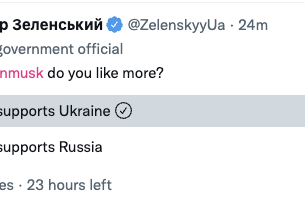STOCKHOLM — In a landmark ruling, a Swedish court on Thursday sentenced an Iranian man to life in prison for the role he played in a notorious campaign of mass executions and torture carried out by the Iranian government against its political opponents in 1988.
Judges at Stockholm District Court ruled that 61-year-old Hamid Noury, in his position as assistant to the deputy prosecutor at Gohardasht prison outside Tehran, played an active role in the summary trial and execution of a “large number” of prisoners condemned to death by a committee visiting the jail.
Those proceedings violated basic requirements for a fair trial including provisions set out by the U.N. by which Iran was bound in 1988, the Stockholm court said.
“The accused … among other things, collected prisoners and brought them to the committee as well as escorted prisoners to the execution site,” District Court Judge Tomas Zander told reporters. “The circumstances were such that the accused is to be regarded as a perpetrator.”
Noury is the first person to be convicted for crimes associated with the 1988 executions.
Following the court’s announcement, cheers could be heard from a crowd that had gathered outside. Many of them were holding pictures of relatives they said had been killed during the 1988 purge.
“This is a historic day … a day of justice,” Laleh Bazargan, a plaintiff in the case against Noury, told Sweden’s national broadcaster SVT.
But while the mood outside the court in Stockholm was largely jubilant, concerns are already growing about what effect the verdict might have on already frosty relations between Sweden and Iran.
Iran is holding Swedish-Iranian researcher Ahmadreza Djalali on charges of spying and has threatened to execute him, and experts believe the conviction of Noury could make securing the release of Djalali more difficult.
Maja Åberg, a Stockholm-based policy adviser for Amnesty International, noted reports from Iranian state news agencies last year suggesting that if Noury was convicted, Djalali would be executed.
“I am very worried, this is very serious,” Åberg told SVT.
The cases of Noury and Djalali also seem likely to play into negotiations over potential prisoner exchanges elsewhere in Europe.
Earlier this month, Belgian lawmakers discussed a change in legislation that could facilitate the deportation of a convicted Iranian terrorist to Iran, possibly paving the way for the release of a Belgian citizen or Djalali from Iranian custody.
Iranian condemnation
Iranian authorities have condemned the trial of Noury since it began in August last year, saying it was politically motivated.
The case has been particularly sensitive in Tehran because the current president, Ebrahim Raisi, is alleged to have been a key figure in the 1988 purge as a member of the committee ruling which prisoners should be killed and which should be spared.
International organizations have long pressed Iran to address this murky chapter in its past, something Raisi and the government in Tehran have largely resisted.
When questioned about his role in the killings last year, Raisi said he had “defended human rights” in every position he had held.
For his part, Noury has rejected the accusations against him on the grounds of mistaken identity.
“I don’t understand what you are talking about,” he told police after his arrest. “You are making a mistake, there has been a misunderstanding, you have the wrong man.”
A dark history
The 1988 purge has its roots in the early days of Iran’s Islamic regime, which took power in a revolution in 1979 led by the cleric Ruhollah Khomeini.
In the years that followed the revolution, a power struggle raged between the new regime and an opposition group called the People’s Mujahedin.
Khomeini’s attitude toward the group hardened after it sided with Iraq during the Iran-Iraq wars of the 1980s, and in 1988, Khomeini ordered trials of group members being held in Gohardasht and other prisons.
Human rights groups say these trials led to thousands of summary executions.
On Thursday, the court in Stockholm ruled Noury’s actions in 1988 constituted violations of international law and murder.
A life sentence in Sweden generally means a minimum of 20 to 25 years in prison, but it can be extended. If he is eventually released, Noury will be sent back to Iran.
It was not immediately clear if he planned to appeal.
Noury, who had evaded justice for decades, was arrested at an airport near Stockholm during a visit to Sweden in 2019.
Sweden brought the case against him under the legal principle known as universal jurisdiction, which permits one state to try cases of serious alleged criminality in another.
Outside the court, relatives of the victims of the purge said they were grateful to Sweden for bringing the case.
“This means so much to me,” said the plaintiff Bazargan, who said her brother had been executed in 1988. “After 33 years, we never thought we would see this day.”




